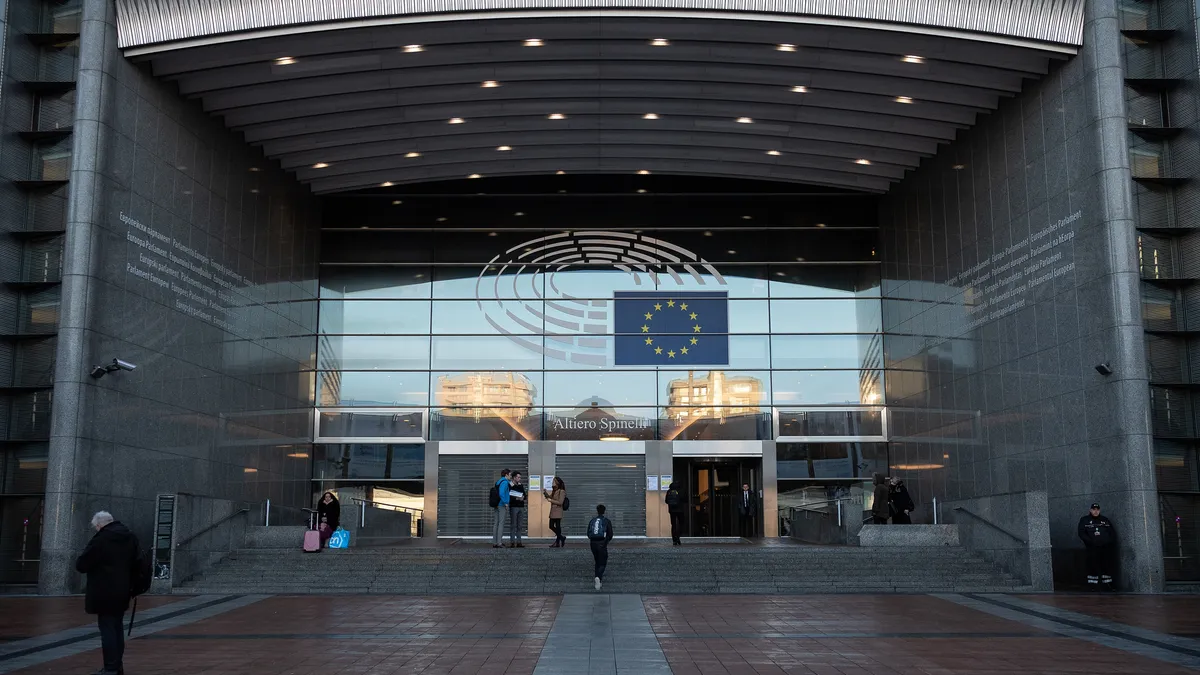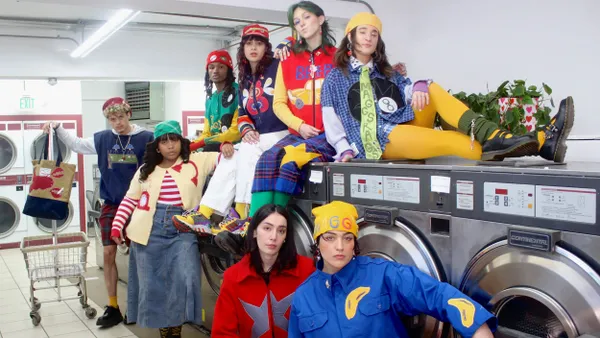Dive Brief:
- The European Parliament approved a draft of a law on Thursday which would make it mandatory for large companies to report and prevent the use of child labor and damaging environmental practices in their value chains, which refers to production, marketing, and after-sales service of an item, according to a news release.
- The law would also require companies to implement a transition plan to limit global warming. For companies with more than 1,000 employees, meeting the plan’s targets could also impact leaders’ bonuses.
- Also on Thursday, the European Parliament approved recommendations for a strategy on sustainable and circular textiles, which would call for textiles sold in the EU to be more durable, and easier to reuse, repair and recycle, according to a separate news release.
Dive Insight:
The push for companies to mitigate the negative social and environmental impacts of their products will now move to negotiations with EU member states before the final text of the legislation can be approved. The initial proposal was adopted in February 2022.
The approved draft of the law addresses a company’s role in slavery, labor exploitation, pollution, environmental degradation and biodiversity loss. A report from Walk Free last month found that elements of the fashion industry — garments and textiles — were some of the products most at-risk of being manufactured with forced labor.
The rules apply not only to suppliers but also to elements during the sale, distribution, transportation, storage and waste management of products.
The law would impact all EU-based companies with more than 250 employees regardless of sector, as well as parent companies with more than 500 employees. It would also require companies to engage with “those affected by their actions, including human rights and environmental activists” and push companies to “introduce a grievance mechanism and regularly monitor the effectiveness of their due diligence policy,” per the release.
Parliament voted with 366 in favor, 225 against, and 38 abstentions. According to a report from Reuters, a provision in the law that would boost the obligation of company boards and directors to ensure compliance failed.
Other approved recommendations made on Thursday concerned the EU’s strategy on textiles, including a call for an end to fast fashion and a ban on the destruction of unsold and returned textile goods.
The recommendations state that the supply chain for manufacturing of textiles should include human, social and labor rights as well as environmental and animal welfare concerns.
The news builds on the EU Council’s move last month backing proposed regulations on stronger sustainability requirements for the fashion industry, which would ban destroying unsold textiles, footwear and apparel











